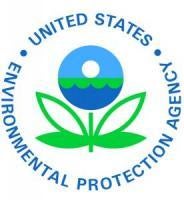SAN FRANCISCO – The U.S. Environmental Protection Agency has reached an agreement with the Atlantic Richfield Company (ARC) to reimburse EPA for costs incurred from cleanup actions at the Anaconda Mine site near Yerington. The settlement, for $940,085, is the third settlement for costs at this site, bringing the total collected to $5,910,121. The funds will be placed into an account and used for future actions at the site.
“This settlement furthers EPA’s efforts to have companies responsible for environmental contamination pay their share of cleanup costs,” said Jane Diamond, Director of the Superfund Division in EPA’s Pacific Southwest Region. “EPA will use this money to address urgent cleanup needs at the site and continue our work investigating the site and overseeing the actions of ARC.”
EPA and ARC, under EPA’s enforcement authority, are continuing to investigate site contaminants in soil and groundwater and address contamination that affects the community. Actions completed in the winter included the removal of over 6,000 tons of soil contaminated with radioactive materials and 27,000 feet of pipe contaminated with asbestos and radioactive materials. More than 26 acres of mine tailings were also capped to limit standing, acidic water that could lead to wildlife deaths, and to minimize migration of dust containing hazardous substances. The work was completed a month ahead of schedule and one-third of the work crew was local labor.
Originally known as the Empire Nevada Mine, the site began operation around 1918 and was acquired in 1953 by Anaconda Minerals. From 1977 to 1982 the company was owned by ARC and then sold to Don Tibbals, a local resident, who subsequently sold most of his interests to Arimetco Inc.
Arimetco operated a copper recovery operation from existing ore heaps within the site from 1989 to November 1999. Arimetco has terminated operations at the site and is currently managed under the protection of the United States Bankruptcy Court in Tucson, Ariz.
The threats on the site come from metals contaminating the groundwater that could impact human health. Mining operations enhanced levels of naturally occurring uranium, making the radioactive substance more pervasive and mobile in and around the site. Additional concerns include contaminated surface water that can impact wildlife.



 />i
/>i

